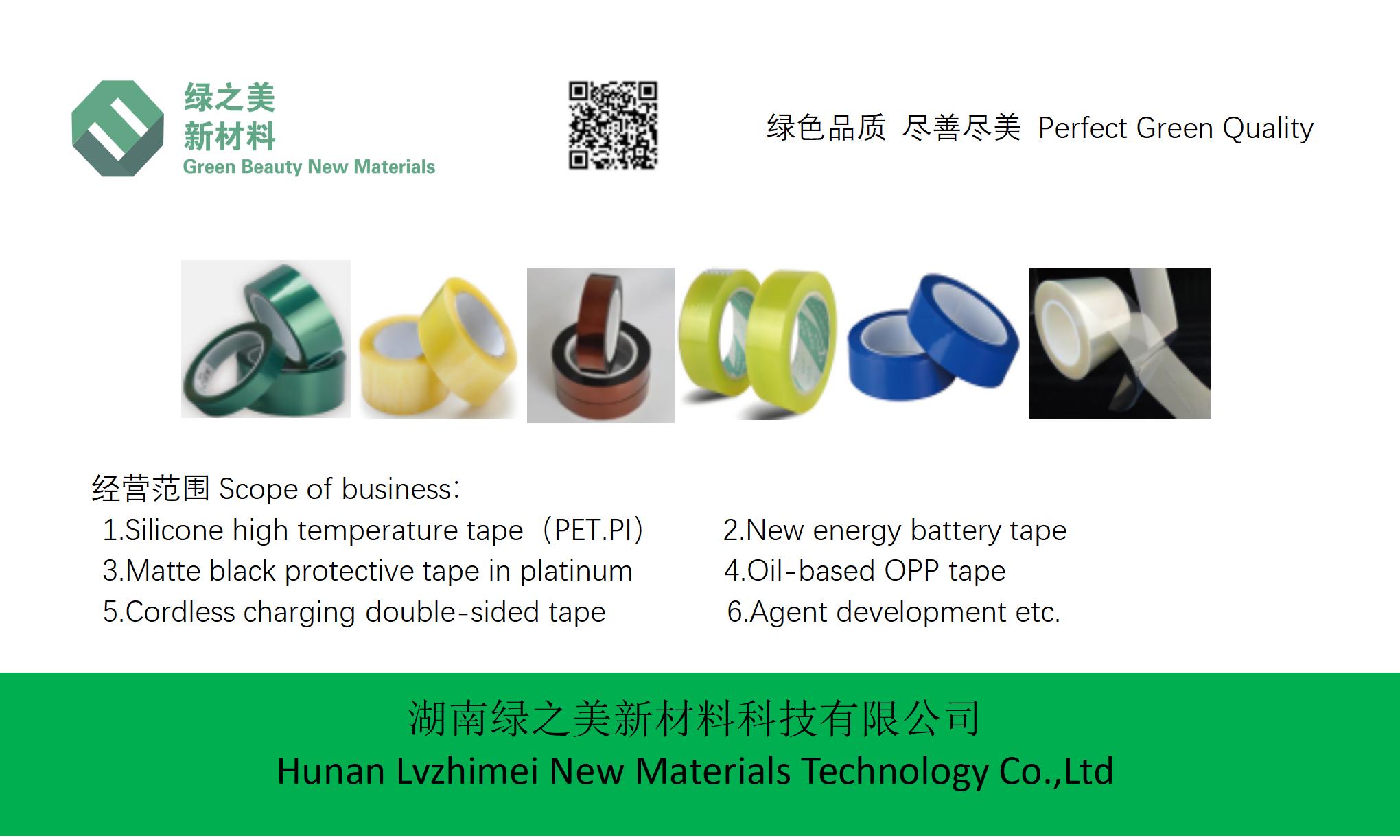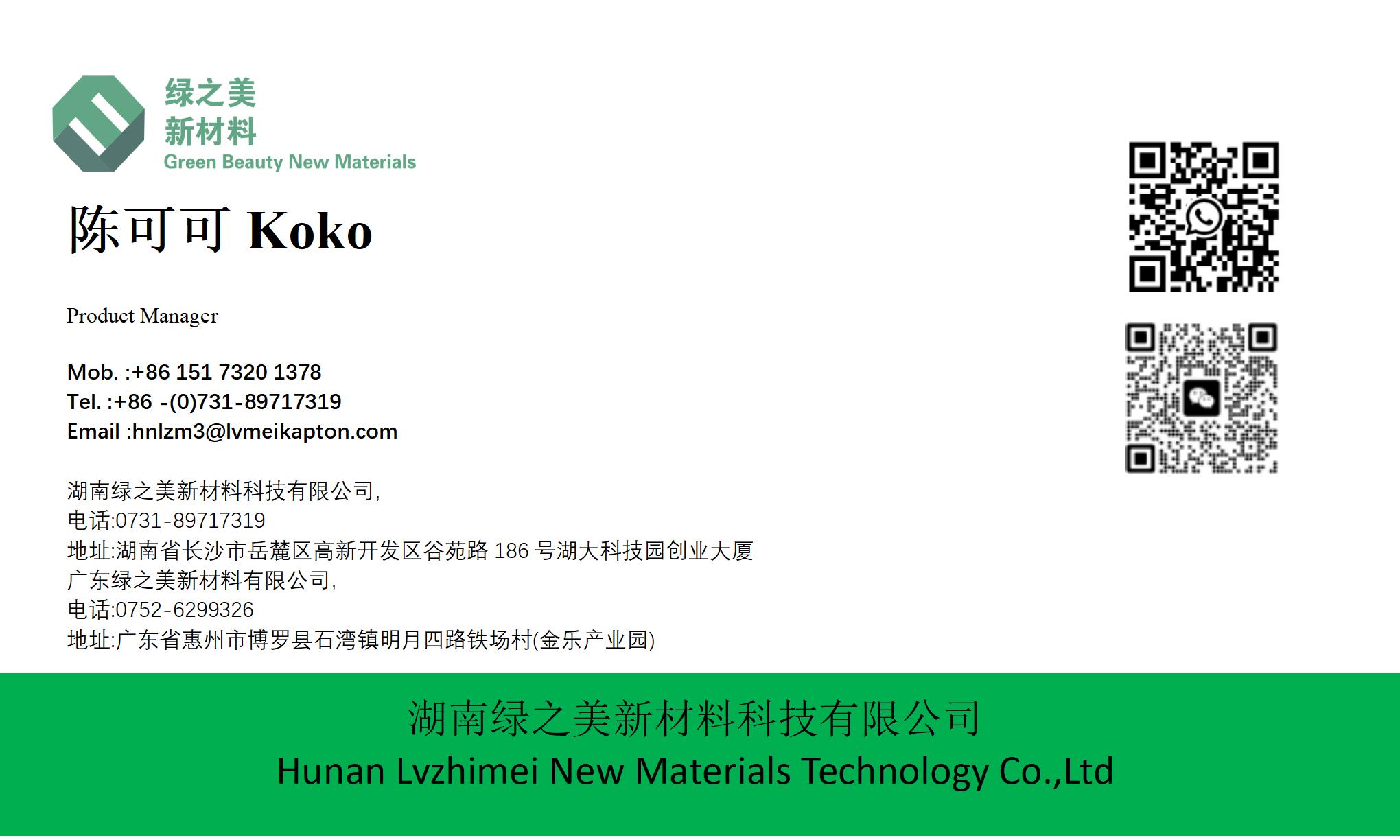hnlzm@lvmeikapton.com
+86 13787123465


Hunan Lvzhimei New Material Technology Co., Ltd.


NameDescriptionContent
Why Is Strong Adhesion and Blocking High Temperature Tape Mandatory for Oil & Gas Downhole Sensors? |https://www.lvmeikapton.com/
Source:
|
Author:Koko Chan
|
Published time: 2025-04-18
|
6 Views
|
Share:
In the oil and gas industry, downhole sensors play a critical role in monitoring reservoir conditions, ensuring equipment reliability, and optimizing production processes. These sensors are exposed to extreme environments characterized by high temperatures, pressures, and corrosive media, particularly hydrogen sulfide (H2S). To maintain their integrity and functionality, sensors require robust protection solutions. This article delves into the necessity of using strong adhesion and blocking high temperature tape in downhole applications, highlighting the technical challenges, material selection criteria, and performance advantages of polyimide (PI) tapes.


Why Is Strong Adhesion and Blocking High Temperature Tape Mandatory for Oil & Gas Downhole Sensors?
IntroductionIn the oil and gas industry, downhole sensors play a critical role in monitoring reservoir conditions, ensuring equipment reliability, and optimizing production processes. These sensors are exposed to extreme environments characterized by high temperatures, pressures, and corrosive media, particularly hydrogen sulfide (H2S). To maintain their integrity and functionality, sensors require robust protection solutions. This article delves into the necessity of using strong adhesion and blocking high temperature tape in downhole applications, highlighting the technical challenges, material selection criteria, and performance advantages of polyimide (PI) tapes.
The Technical Challenges of Downhole Environments
1.
Corrosive H2S Environment:
H2S is a highly corrosive gas that poses severe risks to metal components and electronic sensors. Wet H2S environments accelerate hydrogen embrittlement and sulfide stress cracking (SSC) due to the dissolution of H2S in water and subsequent hydrogen diffusion into materials. The NACE TM0177 standard, widely adopted for testing materials’ resistance to SSC, evaluates performance through methods such as tensile tests, C-ring tests, and double cantilever beam (DCB) tests. Materials must withstand prolonged exposure to H2S-containing solutions without cracking or degradation.
2.
Extreme Temperature and Pressure:
Downhole temperatures can exceed 200°C, coupled with pressures up to 10,000 psi. Conventional adhesive materials, such as epoxy resins, exhibit thermal degradation, adhesive failure, or powderization after prolonged exposure. For example, epoxy coatings may lose adhesion integrity and crack under thermal cycling, leading to sensor malfunction.
3.
Long-term Service Requirements:
Oil and gas sensors often require service lifetimes exceeding 10 years. Protection materials must exhibit consistent performance over extended periods, maintaining strong adhesion even after thousands of hours of exposure to harsh conditions.
Why PI Material High Temperature Resistant 300 Tape Is EssentialPolyimide (PI) tapes, specifically designed for downhole applications, offer unique advantages that address the above challenges. Key features include:
1.
Superior Temperature Resistance:
PI tapes exhibit exceptional thermal stability, withstanding temperatures up to 300°C without significant degradation. Their chemical structure, featuring aromatic rings and imide groups, provides inherent resistance to thermal aging and mechanical stress. This ensures reliable performance in extreme environments.
2.
Outstanding Adhesion and Chemical Resistance:
PI tapes are formulated with high-performance pressure-sensitive adhesives (PSAs) that offer strong adhesion and blocking high temperature tape characteristics. Unlike epoxy coatings that may powderize or delaminate over time, PI tapes maintain adhesive strength even after 2,000 hours of exposure to H2S environments. For example, laboratory tests conducted per NACE TM0177 demonstrate >85% adhesion retention after 2,000 hours, ensuring long-term bonding integrity.
3.
Corrosion Barrier Properties:
PI films act as effective barriers against H2S, moisture, and other corrosive media. Their dense molecular structure and low permeability prevent gas ingress, protecting underlying substrates. This feature is critical for maintaining sensor electrical insulation and preventing corrosion-induced failures.
Technical Validation: Performance ComparisonTable 1 compares the performance of PI tape and epoxy coating under simulated downhole conditions (200°C, 10% H2S solution, 2,000 hours):
Parameter | PI Tape | Epoxy Coating |
Initial Adhesion (N/cm) | 15±2 | 18±3 |
Adhesion Retention (2,000 h) | >85% | 45% (powderization observed) |
Thermal Degradation | Minimal (Tg > 350°C) | Significant (Tg ~ 150°C) |
H2S Resistance | Passes NACE TM0177 Method C | Cracking observed after 1,200 h |
Long-term Stability | >10 years predicted | ≤5 years |
Key Observations:
●
PI tape maintains >85% adhesion retention, while epoxy coating experiences severe degradation and powderization.
●
PI tape demonstrates superior resistance to SSC as validated by NACE TM0177 tests.
●
Thermal analysis (TGA/DSC) confirms PI’s stability at 300°C, surpassing epoxy’s thermal limit.
Application ConsiderationsPI tapes are deployed in various downhole sensor protection scenarios, including:
1.
Wireline Sensor Encapsulation:
Coiled tubing and logging tools equipped with pressure, temperature, and acoustic sensors are wrapped with PI tape to prevent H2S ingress and thermal damage. The tape’s conformability ensures complete coverage of complex geometries.
2.
Cable Insulation Protection:
PI tape reinforces the insulation of downhole cables, resisting abrasion, corrosion, and thermal stress. Its high dielectric strength (>10 kV/mil) safeguards against electrical failures.
3.
Wellhead Equipment Sealing:
PI tape is used as gasket materials and sealants for connectors and joints, preventing gas leaks and maintaining pressure integrity.
Case Study: PI Tape in Ultra-Deep Well ApplicationsA leading oilfield service company conducted a field trial in a high-H2S well (240°C, 15% H2S partial pressure). Sensors protected with PI tape (PI material high temperature resistant 300 tape) demonstrated:
●
Zero adhesive failure after 18 months of operation.
●
No signs of SSC or hydrogen blistering.
●
Consistent sensor performance throughout the service period.
In contrast, sensors coated with epoxy resin experienced adhesive delamination within 6 months, resulting in equipment replacement costs and downtime.
ConclusionThe use of strong adhesion and blocking high temperature tape is non-negotiable for oil and gas downhole sensors. PI tapes, with their unparalleled temperature resistance, adhesive durability, and corrosion barrier properties, offer a reliable solution to mitigate H2S-related failures and extend sensor lifetimes. As demonstrated through NACE TM0177 testing and field deployments, PI tapes ensure sensor integrity even in the most challenging environments, ultimately enhancing production safety and efficiency.
References:
1.
NACE TM0177-2016: "Laboratory Testing of Metals for Resistance to Sulfide Stress Cracking and Stress Corrosion Cracking in H2S Environments"
2.
Smith, J. et al. (2023). "Performance Evaluation of Polyimide Tapes for Downhole Sensor Protection." Journal of Petroleum Science and Engineering, Vol. 223.
3.
EFC 16: "Guidelines for Materials in Carbon and Low Alloy Steels for Use in H2S Environments in Oil and Gas Production"



Hunan Lvzhimei New Material Technology Co., Ltd.
Quick Links
Product Categories
© 2024 Hunan Lvzhimei New Material Technology Co., Ltd.All Rights Reserved. Designed by Erge
0731 - 89717319
hnlzm@lvmeikapton.com
+86 13787123465
Room 502, Chuangye Building, No186, Guyuan Road, High-Tech District, Changsha, Hunan, China
CONTACT



